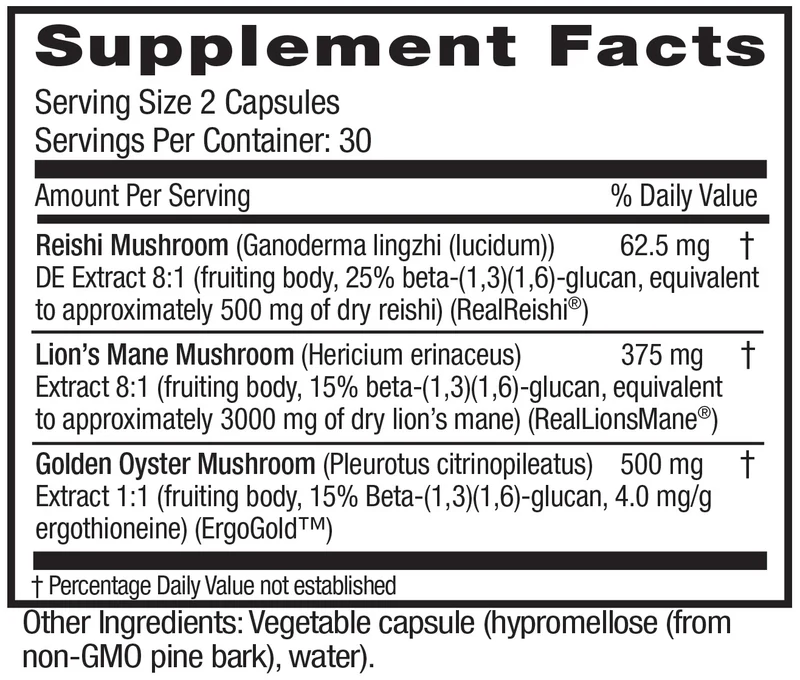.jpg)
For centuries, the Lion’s Mane mushroom, also known by its scientific name Hericium erinaceus, has been revered in Asia for both its culinary delicacy and its medicinal properties. With its distinct appearance of long, white, cascading spines, this fungus has a history deeply rooted in traditional medicine. Today, modern science is validating these ancient uses, revealing Lion's Mane as a powerful natural supplement for cognitive health.
The remarkable effects of Lion's Mane are attributed to a unique combination of bioactive compounds, each playing a vital role in supporting brain function:
Lion’s Mane doesn't just work on one aspect of brain health; it employs multiple mechanisms to support and protect the nervous system:
The cognitive benefits of Lion's Mane are not just theoretical; they are backed by scientific research, including human clinical trials:
Additionally, a comprehensive review of high-quality human and animal studies highlighted Lion's Mane's potential for the prevention and delayed progression of Alzheimer’s disease (AD). The review concluded that the mushroom's application "demonstrated numerous improvements in AD-related behavior, biomarker parameters, histological features and physiological mechanisms while neuroprotective and neurotrophic properties were also clearly established."
Lion’s Mane is more than just a culinary mushroom; it is a fascinating and powerful nootropic that offers a range of brain-boosting benefits. Through its unique compounds, it stimulates nerve growth, protects neurons from damage, and reduces inflammation, all of which contribute to enhanced cognitive function and overall brain health. As research continues to uncover its full potential, Lion's Mane stands as a promising natural ally for anyone looking to support their brain's health and vitality throughout their life. It is one of the main ingredients in my popular formula: Mushroom Memory & Wellness formula.

References
Contato, A. G., & Conte-Junior, C. A. (2025). Lion's Mane Mushroom (Hericium erinaceus): A Neuroprotective Fungus with Antioxidant, Anti-Inflammatory, and Antimicrobial Potential-A Narrative Review. Nutrients, 17(8), 1307. https://doi.org/10.3390/nu17081307
Cornford, N., & Charnley, M. (2025). Hericium erinaceus: A possible future therapeutic treatment for the prevention and delayed progression of Alzheimer's disease? - A narrative review. Nutrition research reviews, 1–15. Advance online publication. https://doi.org/10.1017/S0954422425000058
Docherty, S., Doughty, F. L., & Smith, E. F. (2023). The Acute and Chronic Effects of Lion's Mane Mushroom Supplementation on Cognitive Function, Stress and Mood in Young Adults: A Double-Blind, Parallel Groups, Pilot Study. Nutrients, 15(22), 4842. https://doi.org/10.3390/nu15224842
Mori, K., Inatomi, S., Ouchi, K., Azumi, Y., & Tuchida, T. (2009). Improving effects of the mushroom Yamabushitake (Hericium erinaceus) on mild cognitive impairment: a double-blind placebo-controlled clinical trial. Phytotherapy research : PTR, 23(3), 367–372. https://doi.org/10.1002/ptr.2634
Saitsu, Y, Nishide, A, Kikushima, K, et al. Improvement of cognitive functions by oral intake of Hericium erinaceus. Journal of Biomedical Research (Tokyo) [Online]; 2019.